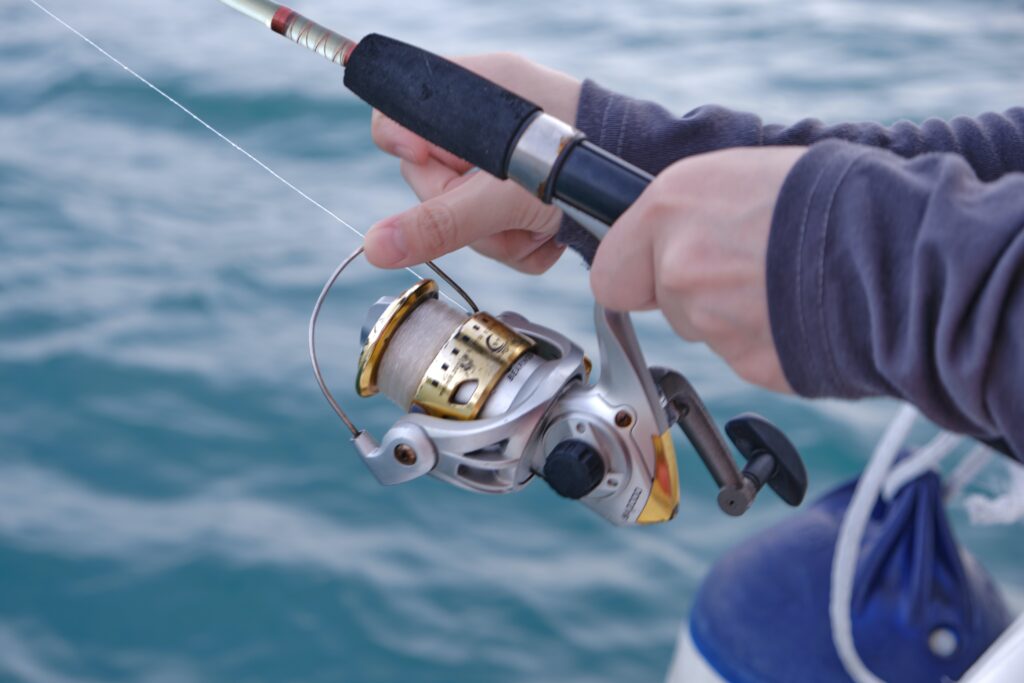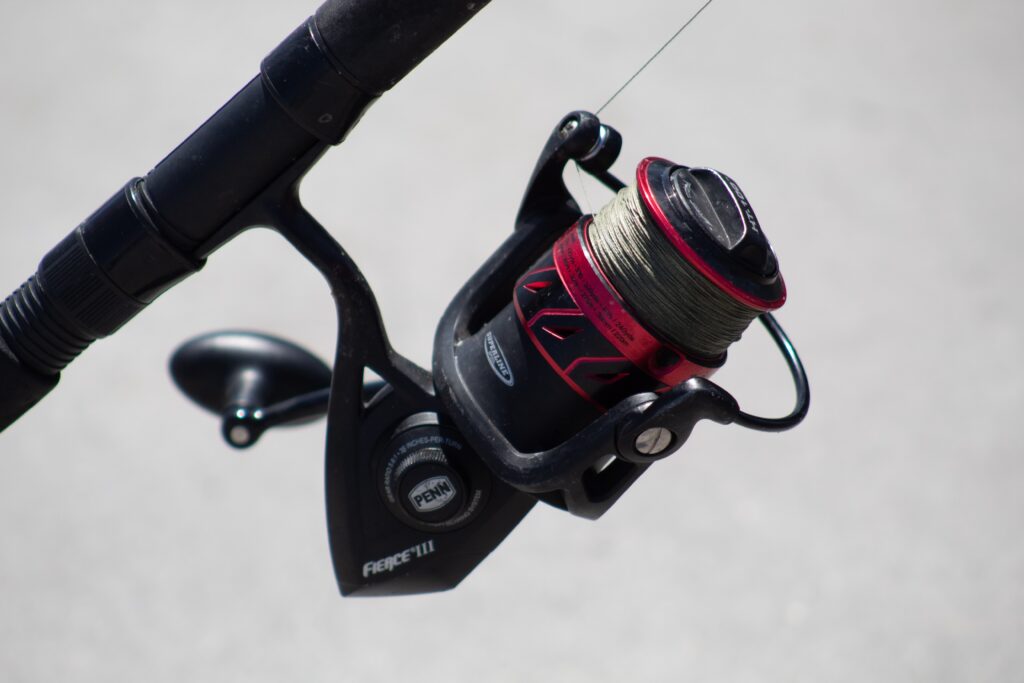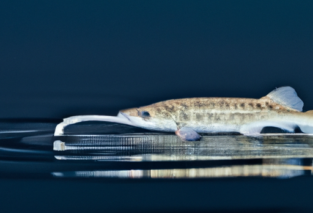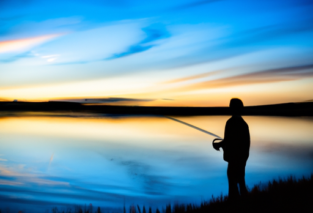Whether you’re an experienced angler or a beginner, choosing the right fishing rod power can make a significant difference in your fishing success. With so many options available, it can be overwhelming to determine which power is best suited for your fishing needs. That’s why “How To Choose The Right Fishing Rod Power: Factors And Recommendations” is here to help. This informative article provides expert advice and recommendations on factors to consider when selecting the ideal fishing rod power. From understanding the fishing conditions to matching the rod power with your target species, this article has got you covered. Dive into this comprehensive guide and make an informed decision on your next fishing rod purchase.

Factors to Consider When Choosing Fishing Rod Power
Type of fish you plan to catch
When choosing the right fishing rod power, one of the first factors you should consider is the type of fish you plan to catch. Different fish species have different sizes and weights, so you’ll need a rod that can handle the specific demands of your target fish. For smaller fish like trout or panfish, a light or ultralight rod power will usually suffice. On the other hand, if you’re targeting larger and more powerful fish like bass or pike, you’ll need a medium or heavy rod power to handle the fight.
Fishing technique and style
Your fishing technique and style also play a crucial role in determining the appropriate rod power. Are you someone who enjoys finesse fishing, using lighter lines and smaller lures? Or are you more of a power fisherman who prefers casting heavy baits and engaging in aggressive techniques? If finesse fishing is your preferred style, a light or medium-light rod power would be suitable. However, if power fishing is more your speed, you’ll want to opt for a medium-heavy or heavy rod power.
Line weight and lure size
Another important consideration when choosing fishing rod power is the line weight and lure size you intend to use. Different rod powers are designed to handle specific line weights and lure sizes effectively. For example, a light rod power is typically designed for lines in the 2-8 pound range and small to medium-sized lures. On the other hand, a heavy rod power is better suited for heavier lines in the 12-25 pound range and larger lures. Make sure to match your rod power with the appropriate line weight and lure size for optimal performance.
Casting distance and accuracy
If you’re someone who values casting distance and accuracy, it’s essential to consider these factors when choosing the right fishing rod power. A longer rod will generally provide greater casting distance, allowing you to reach those hard-to-reach spots. However, keep in mind that longer rods can sacrifice some accuracy, especially in tight or confined spaces. For improved accuracy, a shorter rod may be more suitable. Additionally, the rod power can affect casting distance, as heavier powers are typically better at casting heavier baits over longer distances.
Type of fishing environment
The fishing environment you typically find yourself in should also influence your choice of fishing rod power. If you primarily fish in open or spacious areas like lakes or offshore waters, you may benefit from a longer and more powerful rod to handle larger fish and longer casts. On the other hand, if you mainly fish in tighter spaces like rivers, streams, or dense vegetation, a shorter and more sensitive rod may be preferable. This will allow you to maneuver and cast with ease in these challenging environments.
Budget
Your budget is undoubtedly a crucial factor to consider when choosing the right fishing rod power. Fishing rods can vary significantly in price, depending on their quality, materials, and features. While it’s always tempting to go for the highest-end and most expensive option, it’s essential to find a balance between your budget and the quality of the rod. There are plenty of affordable rods available that offer excellent performance and durability. Consider your budget and do some research to find the best value for your money.
Experience level
Your experience level in fishing should also be taken into account when selecting the appropriate fishing rod power. If you’re a beginner angler, it’s advisable to start with a rod power that’s easier to handle and forgiving. A medium-light or medium rod power is a good choice for beginners as it provides versatility and allows for a wide range of fishing techniques. As you gain more experience and confidence, you can then transition to rods with heavier powers that cater to your specific fishing needs.
Rod length and action
Rod length and action are critical factors that can significantly impact your overall fishing experience. Longer rods generally offer greater casting distance and leverage when fighting fish. However, they can also be more challenging to maneuver, especially in tight spaces. Rod action refers to how much the rod bends and where it bends along its length. Slow or moderate action rods bend more towards the middle or lower sections, while fast action rods bend more towards the tip. Each action has its advantages and disadvantages depending on your fishing style and the fish you’re targeting.
Overall rod weight
The overall weight of the fishing rod can affect your comfort and endurance during long fishing sessions. Heavier rods can cause fatigue and strain on your arms and shoulders, making it harder to enjoy your time on the water. Lighter rods, on the other hand, are more comfortable to hold and cast for extended periods. However, it’s important to strike a balance between weight and strength, as extremely lightweight rods may lack the necessary backbone to handle larger fish or heavier lines. Consider your physical strength and endurance when selecting a rod weight that suits you best.
Fishing conditions
Last but certainly not least, the fishing conditions in which you’ll be using your rod should be taken into consideration. If you primarily fish in calm, clear waters, a more finesse-oriented rod power may be suitable. However, if you often encounter strong currents, windy conditions, or are targeting aggressive and hard-fighting fish, you’ll need a rod power that can handle these challenging conditions. Think about the specific fishing conditions you typically encounter and choose a rod power that can perform optimally in those situations.

Recommendations for Choosing the Right Fishing Rod Power
Beginner anglers
For beginner anglers, it’s crucial to start with a fishing rod power that allows for versatility and ease of use. A medium-light or medium rod power is generally a good starting point. These powers provide enough backbone to handle a wide range of fish sizes and fishing techniques while remaining forgiving and less prone to breakage. Look for rods in the 6 to 7-foot range as they offer a good balance between casting distance and maneuverability. Remember, as a beginner, it’s okay to make mistakes and learn, so don’t be too concerned with having the perfect rod power right away.
Freshwater fishing
Freshwater fishing encompasses a wide range of environments, species, and fishing techniques. In general, a medium power rod is a versatile choice for freshwater fishing. It allows you to target a variety of fish sizes, from panfish to bass or walleye. A length of 6 to 7 feet is typically ideal for most freshwater applications, striking a balance between casting distance and maneuverability. However, if you’re specifically targeting large species like muskies or catfish, a heavy rod power may be more suitable to handle the power and weight of these fish.
Saltwater fishing
When it comes to saltwater fishing, the demands on your fishing rod increase significantly. The saltwater environment introduces corrosive elements, stronger currents, and larger, more powerful fish. For inshore saltwater fishing, a medium-heavy to heavy rod power is generally recommended. These powers offer the necessary strength and backbone to handle saltwater species like redfish, snook, or smaller sharks. Opt for a rod length between 7 and 8 feet for improved casting distance and control. If you’re venturing into offshore waters for larger pelagic species, a heavy or extra-heavy rod power will be required to handle the fight.
Fly fishing
Fly fishing requires specialized equipment, including fly rods that are designed to cast delicate flies and lightweight lines. The appropriate rod power for fly fishing will depend on the specific type of fish you’re targeting. For smaller freshwater trout or panfish, a light or medium-light fly rod power will suffice. However, if you’re going after larger freshwater species like salmon or steelhead, a medium or medium-heavy fly rod power would be more appropriate. In saltwater fly fishing, a medium to heavy fly rod power is generally recommended to handle larger fish and windy conditions.
Bank fishing
Bank fishing refers to fishing from the shoreline or the bank of a river, lake, or other bodies of water. In these situations, mobility and ease of use are crucial factors to consider. A medium-light to medium rod power is often the preferred choice for bank fishing as it allows for a wide range of fishing techniques and provides versatility. Look for rods in the 7 to 8-foot range for improved casting distance from the shore. Make sure to choose a rod that is lightweight and comfortable to hold for extended periods, as you’ll be carrying it along the bank.
Boat fishing
When fishing from a boat, you have the advantage of mobility and the ability to pursue fish in different areas. For boat fishing, a medium to medium-heavy rod power is generally recommended. This range provides the versatility to target different species and employ various fishing techniques. A rod length of 6 to 7 feet is suitable for most boat fishing situations, allowing for easy maneuverability in a confined space. Additionally, consider the type of boat you’ll be fishing from. If you’ll be fishing from a kayak or small craft, opt for a shorter rod for improved control.
Ice fishing
Ice fishing requires specialized equipment due to the unique conditions and challenges it presents. For ice fishing, a short and sensitive rod is necessary to detect subtle bites and provide control in tight spaces. Ultralight or light rod powers are typically the best choice for ice fishing, as they allow for finesse techniques and offer sensitivity to feel the fish’s movements. Look for ice fishing rods that range from 24 to 36 inches in length for enhanced maneuverability on the ice. Additionally, choose a rod with a fast or extra-fast action to ensure quick hook sets.
Big game fishing
Big game fishing involves targeting large fish species like marlin, tuna, or swordfish, which require robust and heavy-duty equipment. When it comes to big game fishing, it’s essential to choose a rod power that can handle the extreme power and fight of these fish. Heavy or extra-heavy rod powers are typically recommended for big game fishing, as they provide the necessary strength and backbone to handle large baits and powerful fish. Look for rods in the 6 to 9-foot range, depending on the specific species and fishing technique you plan to employ.
Professional anglers
For professional anglers, having the right fishing rod power can make all the difference in tournament success. As professionals, you’ll likely have specific preferences and techniques that you excel at. It’s essential to choose rod powers that align with your fishing style and the specific demands of the tournaments you participate in. Many professional anglers opt for custom rods that are tailored to their exact specifications and preferences. Custom rods offer the advantage of personalized performance and can give you an edge over the competition.
Custom rod options
Custom rod options are available for anglers who want complete control over the specifications and performance of their fishing rods. With a custom rod, you can choose everything from the rod power and length to the materials used and the specific components. Custom rods are often favored by experienced anglers or professionals who have specific preferences and requirements that commercial rods may not meet. If you’re someone who wants the ultimate fishing experience tailored to your needs, investing in a custom rod can be a worthwhile endeavor.
In conclusion, choosing the right fishing rod power is essential for a successful and enjoyable fishing experience. Consider factors such as the type of fish you plan to catch, your fishing technique and style, line weight and lure size, casting distance and accuracy, fishing environment, budget, experience level, rod length and action, overall rod weight, and fishing conditions. By carefully evaluating these factors and following the recommendations provided, you’ll be able to select the perfect fishing rod power that suits your needs and helps you make the most of your time on the water. Happy fishing!






